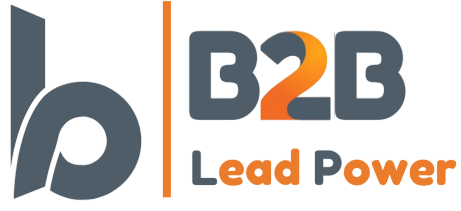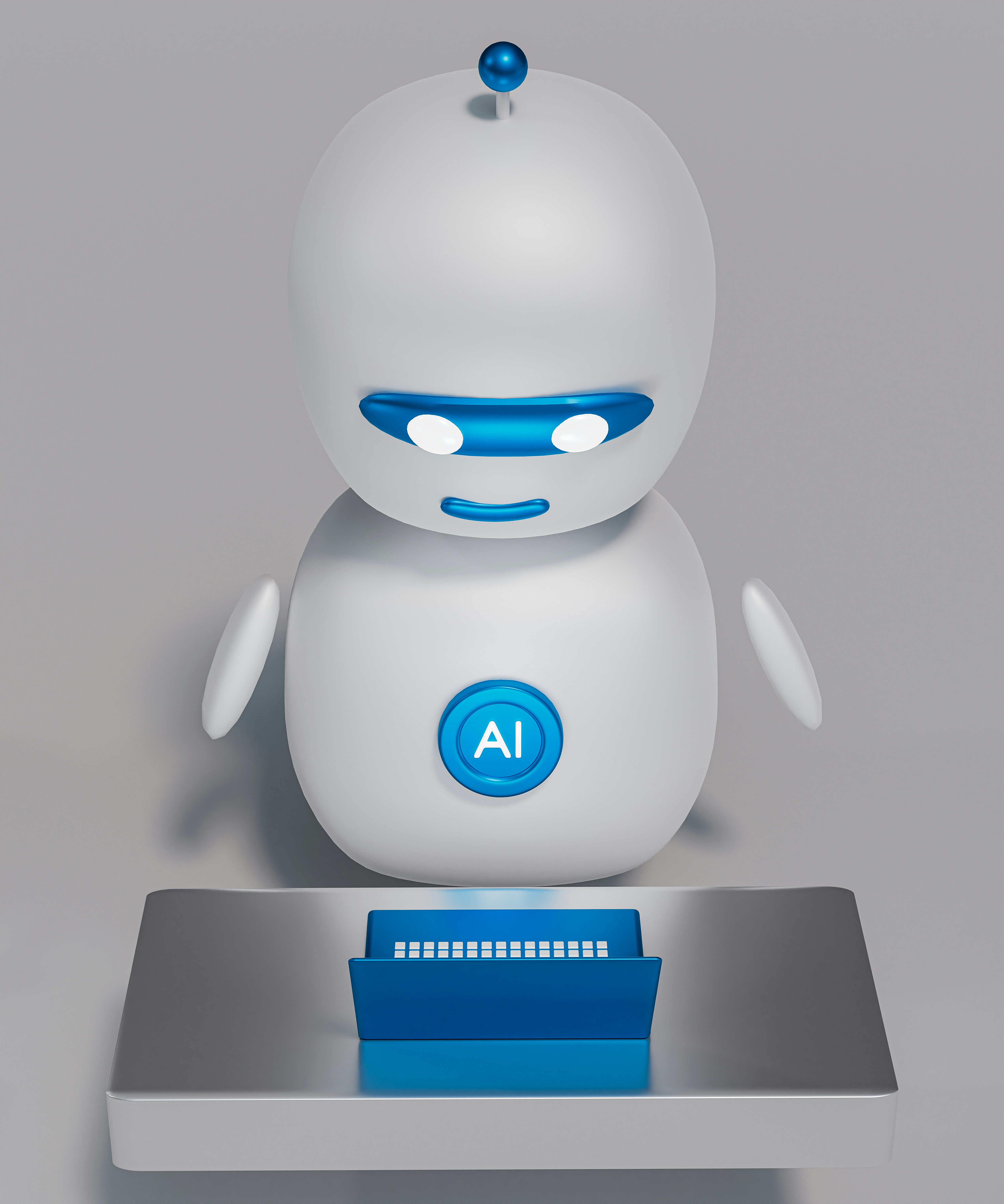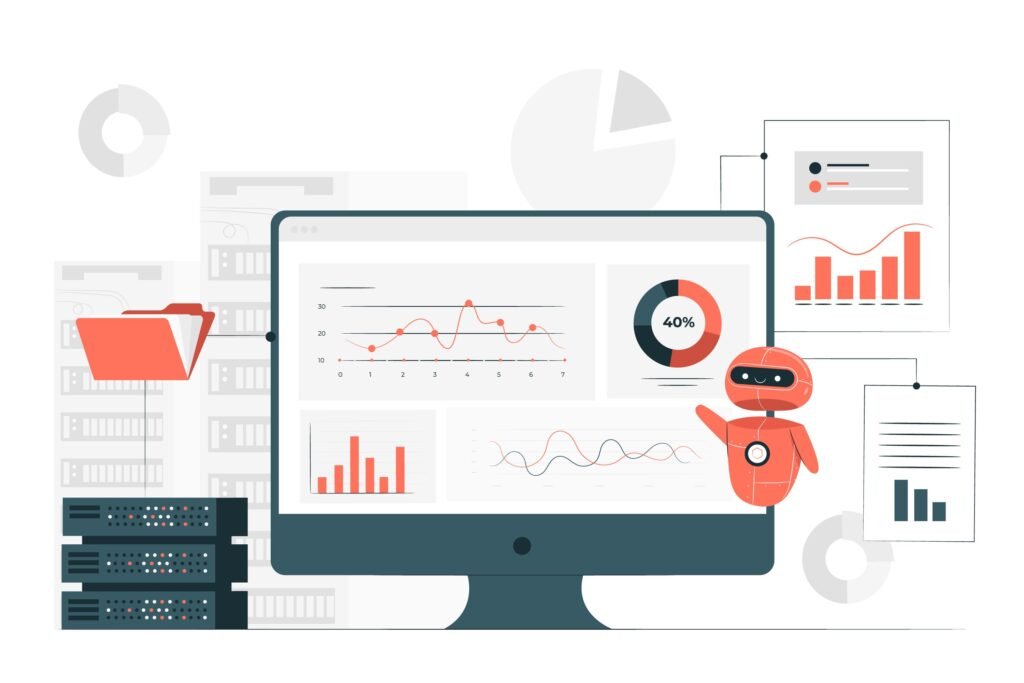Table of Contents
- Introduction to AI Chatbots
- Understanding Lead Qualification
- The Functionality of AI Chatbots in Lead Qualification
- Benefits of Using AI Chatbots for Lead Qualification
- Challenges and Limitations of AI Chatbots
- Real-World Applications and Case Studies
- Evaluating the ROI of Chatbots for Lead Qualification
- Future Trends in AI Chatbots for Lead Qualification
- Conclusion: Weighing the Pros and Cons
Introduction to AI Chatbots
AI chatbots represent a significant advancement in the use of artificial intelligence technologies within business environments. These automated conversation agents are designed to simulate human interaction, allowing organizations to engage with potential customers more effectively. Their primary role in modern business, particularly in the realm of lead qualification, is to streamline the process of identifying and nurturing promising leads.
Utilizing sophisticated algorithms and machine learning capabilities, AI chatbots can analyze user inputs in real time, providing instant responses and support. This immediacy not only enhances customer experience but also allows businesses to gather essential data about potential clients. By interacting with users through natural language processing, these chatbots efficiently address queries, collect relevant information, and qualify leads based on pre-defined criteria.
The integration of AI chatbots into lead qualification processes offers several benefits. They are available 24/7, ensuring that businesses do not miss opportunities to capture information from visitors at any time. Moreover, chatbots can handle multiple interactions simultaneously, increasing efficiency and allowing human agents to focus on high-priority tasks. This automation significantly reduces the time required for initial customer interactions, enabling companies to streamline their sales funnel more effectively.
Furthermore, AI chatbots can be tailored to align with specific business goals and customer profiles. They can engage users with personalized conversations, thereby improving the chances of conversion. The data collected by these chatbots can provide valuable insights into customer preferences and behavior, helping organizations refine their marketing strategies and tactics.
In conclusion, AI chatbots serve as a transformative tool in the business landscape, particularly in lead qualification. Their ability to engage potential customers and gather critical data positions them as an essential resource for organizations looking to improve their sales processes.
Understanding Lead Qualification
Lead qualification is an essential process within the sales funnel that enables organizations to identify and prioritize potential customers who are more likely to convert into paying clients. Effectively qualified leads are crucial, as they help streamline the sales process, ensuring that sales teams focus their efforts on opportunities with the highest potential for success. This involves assessing various criteria to determine whether a lead meets the standards or characteristics expected of a potential customer.
One of the primary criteria for lead qualification pertains to demographic information. This includes factors such as age, gender, income level, job title, and industry. Sales teams often leverage this data to align their offerings with the needs and preferences of their target audience. Another important criterion involves behavioral patterns, which can include actions such as website engagement, previous purchase history, and responses to marketing campaigns. Understanding these behaviors allows sales teams to gauge the interest and readiness of a lead to make a purchase.
The impact of lead qualification on sales success rates cannot be overstated. By employing a robust lead qualification process, organizations enhance their chances of concentrating resources on leads that exhibit a genuine interest in their products or services. This results in improved conversion rates and increased return on investment (ROI) for marketing campaigns. Furthermore, lead qualification can help identify potential roadblocks in the sales process by highlighting the reasons some leads do not convert, providing insights for future strategies. Overall, a well-defined lead qualification strategy is instrumental in optimizing the sales funnel, maximizing efficiency, and ultimately driving business growth.
The Functionality of AI Chatbots in Lead Qualification
AI-powered chatbots play a pivotal role in enhancing the lead qualification process, streamlining initial customer interactions while effectively gathering vital information. These virtual assistants have the capacity to engage potential customers around the clock, offering immediate responses that help maintain interest and drive engagement. Upon initiating a conversation, the chatbot typically utilizes natural language processing (NLP) to understand and interpret user inquiries. This capability allows the chatbot to connect with prospects in a meaningful way, ensuring that their needs are swiftly acknowledged.
As the conversation progresses, these chatbots collect essential data by asking targeted qualifying questions that address specific aspects of the lead’s interests and requirements. For instance, they may inquire about the lead’s budget, timeline, or particular preferences regarding products or services. By sourcing this information, AI chatbots can assess the relevance of potential leads, categorizing them based on predefined criteria. This process not only saves time but also reduces the manual workload typically associated with lead qualification.
Furthermore, AI chatbots can implement lead scoring systems, assigning scores based on the gathered information and engagement levels. This scoring mechanism enables companies to prioritize leads with higher potential and tailor their approaches accordingly. Consequently, the integration of AI-powered chatbots within the lead qualification framework significantly enhances both accuracy and efficiency. It eliminates the chances of human error, ensuring that crucial data is not overlooked during the qualification process. By utilizing advanced algorithms, these chatbots continuously improve their performance, resulting in a more refined lead qualification strategy.
In summary, the operational capabilities of AI chatbots in lead qualification facilitate efficient interactions, streamline data collection, and improve lead scoring accuracy, thus affirming their value in modern sales processes.

Benefits of Using AI Chatbots for Lead Qualification
Artificial intelligence (AI) chatbots have emerged as key tools in the realm of lead qualification. One of the most significant advantages of implementing these automated systems is their round-the-clock availability. Unlike human team members, AI chatbots can operate 24/7, providing potential customers with immediate assistance at any time. This constant accessibility not only enhances customer service but also ensures that no lead is left unattended, significantly increasing the chances of conversion.
Moreover, the immediacy of responses plays an essential role in today’s fast-paced business environment. AI chatbots can quickly process inquiries and deliver accurate information, which satisfies customer demands for timely communication. This immediate interaction fosters a positive customer experience and allows businesses to engage potential leads without the delays often associated with human agents.
Another benefit lies in improved customer engagement. AI-powered chatbots can tailor conversations based on user inputs, ensuring that each interaction feels personalized. This tailored communication encourages users to continue the conversation and ultimately helps in better understanding of their needs and preferences. The capability to handle multiple inquiries simultaneously also distinguishes chatbots from traditional sales processes, as they can efficiently manage numerous prospects without the risk of oversight or burnout experienced by human staff.
In terms of cost-effectiveness, the implementation of AI chatbots can considerably reduce staffing expenses associated with lead qualification. Reducing the need for a large human team not only lowers operational costs but also allows businesses to allocate resources to other important areas. By utilizing AI technology, companies can maintain higher efficiency, managing both customer inquiries and lead qualification processes seamlessly.
Challenges and Limitations of AI Chatbots
While AI-powered chatbots have gained popularity for lead qualification due to their efficiency and scalability, they are not without challenges and limitations. One significant issue is the risk of misunderstanding customer intent. Natural language processing (NLP) technologies, although advanced, still struggle with context, nuance, and slang. Consequently, chatbots may misinterpret queries or fail to grasp the underlying sentiment, leading to unsatisfactory interactions. This can result in frustrated potential leads who feel their needs are not being understood or addressed.
Moreover, chatbots face challenges when responding to complex queries. Many potential leads come with specific, multifaceted questions that require a depth of understanding and a level of emotional intelligence that AI has not yet fully achieved. In such cases, chatbots may fail to provide relevant answers or may resort to generic responses that do not meet the customer’s expectations. This inadequacy can hinder the lead qualification process, as potential customers might seek more personalized engagement, which a chatbot is often unable to deliver.
Concerns regarding the quality of interaction with AI chatbots are also prevalent. Human interactions typically involve empathy, understanding, and nuanced communication that are difficult for a machine to replicate. As a result, this lack of genuine connection can diminish the overall customer experience, leading to lower engagement rates and missed opportunities for conversion. For businesses relying heavily on chatbots for lead qualification, it is crucial to consider these limitations to ensure that potential leads receive the quality of service necessary to convert them into customers. Therefore, organizations must carefully balance the use of AI chatbots with human oversight to address these challenges effectively.
Real-World Applications and Case Studies
AI-powered chatbots have been increasingly integrated into lead qualification strategies across various industries, demonstrating their effectiveness and adaptability. One prominent case study involves a leading e-commerce platform that deployed an AI chatbot to assist shoppers in the qualification process. By analyzing user behavior and preferences, the chatbot could pre-qualify leads by gathering essential information, such as budget and product interest. As a result, the company reported a 30% increase in qualified leads that converted into customers, showcasing the potential of chatbots in enhancing sales pipelines.
Another noteworthy example comes from a financial services company that integrated an AI chatbot into their customer service framework. This chatbot was programmed to handle basic inquiries and capture detailed information from potential clients. With a focus on lead qualification, it utilized a series of qualifying questions to segment users effectively. Consequently, the company experienced a significant reduction in response time to inquiries, thereby improving customer engagement and satisfaction rates. Additionally, as more leads were identified, the sales team could focus efforts on high-quality prospects, leading to an uplift in overall revenue.
In the B2B sector, a software firm utilized an AI chatbot during a recent marketing campaign. The chatbot engaged with prospects visiting their website, collecting qualitative data through interactive conversations. It not only qualified leads but also provided tailor-made product recommendations based on user preferences and behavior. The outcome was impressive, as the firm achieved a 40% rise in lead qualification efficiency compared to previous campaigns without chatbot intervention. This case illustrates the ability of AI chatbots to streamline processes while delivering personalized experiences for potential clients.
These case studies highlight that, when implemented thoughtfully, AI-powered chatbots can significantly enhance the lead qualification process, efficiently converting prospects into loyal customers.

Evaluating the ROI of Chatbots for Lead Qualification
In the digital marketing landscape, the implementation of AI-powered chatbots for lead qualification can significantly influence a company’s return on investment (ROI). To evaluate the effectiveness of these chatbots, it is essential to focus on several key performance indicators (KPIs) that reflect their performance in meeting business objectives. One primary KPI to monitor is the lead conversion rate, which measures the percentage of qualified leads that ultimately convert into paying customers. A higher conversion rate suggests that the chatbot efficiently identifies and nurtures high-potential leads, indicating a positive ROI.
Customer satisfaction is another crucial metric to assess when evaluating the impact of chatbots. This can be measured through direct feedback, customer surveys, or net promoter scores (NPS). A chatbot that provides timely and relevant responses can enhance the customer experience, fostering trust and encouraging prospects to engage further with the brand. By analyzing customer satisfaction trends post-implementation, businesses can gain insights into the chatbot’s effectiveness in capturing leads and maintaining a favorable brand image.
Additionally, it is important to consider cost implications associated with deploying AI chatbots. Initial investments may include development, integration, and ongoing maintenance expenses. However, the long-term benefits often outweigh these initial costs. Efficient chatbots can operate 24/7, providing instant responses to inquiries, which reduces the need for extensive human resources for lead qualification processes. This cost-efficiency can significantly contribute to achieving a favorable ROI over time.
Incorporating these KPIs, businesses can form a comprehensive view of the ROI generated by chatbots in lead qualification. By continuously monitoring and adjusting strategies based on this data, organizations can maximize their investment while enhancing overall productivity and customer engagement.
Future Trends in AI Chatbots for Lead Qualification
The landscape of AI-powered chatbots is rapidly evolving, particularly in the realm of lead qualification. Emerging trends show that these intelligent systems are becoming increasingly sophisticated, allowing businesses to enhance their customer engagement strategies significantly. One prominent trend is the growing emphasis on personalization. As AI technology advances, chatbots are expected to leverage machine learning algorithms to analyze user behavior and preferences more effectively. This level of customization will enable chatbots to tailor interactions to individual customers, enhancing the overall lead qualification process and improving conversion rates.
Moreover, advancements in natural language processing (NLP) are set to revolutionize how chatbots communicate. Improved NLP capabilities will allow chatbots to understand context, sentiment, and even nuanced language better. This means that AI chatbots can engage in more meaningful dialogues, addressing customer inquiries with a depth that resembles human interaction. By effectively interpreting customer needs, these chatbots can streamline the lead qualification process, ensuring that potential clients receive accurate and relevant information tailored to their specific situations.
Integration of AI chatbots with other sales tools and customer relationship management (CRM) systems is another crucial trend. Collaborative ecosystems allow chatbots to access comprehensive customer data, enabling them to provide real-time insights during the lead qualification process. For instance, integrating chatbots with CRM systems can facilitate seamless data sharing, thereby ensuring that sales teams have up-to-date information at their fingertips. This interconnectedness not only improves the efficiency of lead qualification but also enhances the overall customer experience as interactions become more fluid and coherent.
As businesses continue to adopt AI-powered chatbots for lead qualification, the emphasis on personalization, advanced NLP, and integration with existing sales platforms will shape the future of this technology. These trends indicate that chatbots will play a pivotal role in driving lead generation strategies, making them indispensable tools in the sales arsenal.
Conclusion: Weighing the Pros and Cons
As the landscape of lead qualification continues to evolve, the utilization of AI-powered chatbots has emerged as a significant consideration for many businesses. Throughout this discussion, we have explored various aspects of AI chatbots, focusing on their capabilities, benefits, and challenges associated with their implementation. The core proposition lies in the fact that these chatbots can streamline the lead qualification process, providing immediate responses and engaging potential clients at all hours. This can lead to increased efficiency and enhanced customer experiences.
One of the primary advantages we discussed is the ability of AI chatbots to handle a large volume of inquiries simultaneously. By automating several tasks, these bots free up human resources to focus on more complex sales tasks. This efficiency not only reduces operational costs but also enhances conversion rates as leads receive prompt attention. Furthermore, the data analytics capabilities of AI chatbots allow businesses to gain insights into customer behavior and preferences, which can be invaluable for refining marketing strategies.
However, while the benefits are compelling, it is essential to consider the potential drawbacks. The lack of human empathy in AI interactions may hinder relationship-building, which is pivotal in sales. Additionally, technical issues and the initial investment in chatbot technology might deter some businesses from adopting these solutions. Moreover, concerns regarding data privacy and the accuracy of the chatbot’s responses can pose significant barriers.
In weighing these pros and cons, it becomes clear that the decision to implement AI-powered chatbots for lead qualification should be based on a thorough evaluation of specific business needs and customer expectations. Organizations must consider their ability to integrate these technologies effectively while addressing the potential limitations that accompany them. This balanced perspective will help ensure informed decision-making in adopting AI solutions for lead qualification.






Leave a Reply